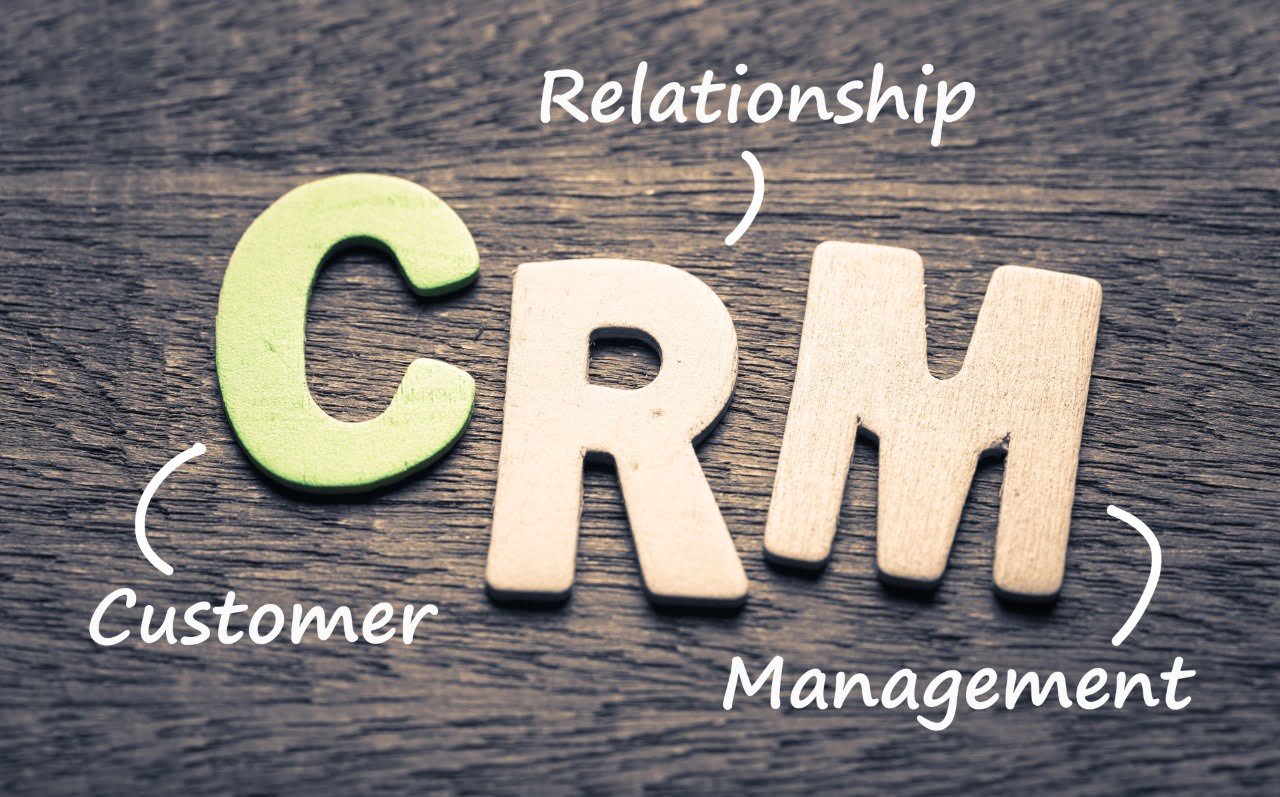Explain CRM
A solution for tracking all of your company’s contacts and relationships with current and potential customers is customer relationship management (CRM). Improving commercial ties is the clear goal. A performance management (CRM) system aids businesses in maintaining contact with clients, streamlining processes, and increasing revenue.
Many businesses employ a mishmash of spreadsheets, databases, & apps to track client information; a CRM replaces these methods. As a result, there was improved organization, efficiency, and time management in addition to happy customers. CRMs, for example, are client management tools that compile all of your marketing leads & customer data in one place. The communications (form fills, phone calls, emails, messages, and meetings), documents, quotes, purchases, and tasks for each lead and client are collected in a CRM.
A CRM, a technology that supports CRM systems, marketing, and sales productivity, and other duties, is what most people mean when they refer to CRM. You can concentrate on your company’s relationships with specific people, such as clients, patients, coworkers, or suppliers, all through the relationship’s lifecycle with the aid of a CRM solution. This includes locating potential clients, gaining their business, and providing support and extra services.
Why do companies hire CRM?
Businesses employ customer relationship management for a number of purposes, but the ultimate objective is to raise revenue and improve customer happiness.
For thoughtful purchases or network operators in general, a CRM works best. Fine jewelers, landscapers, real estate firms, attorneys, and accountants can all benefit from a good CRM. Businesses in the B2B space, especially those with lengthy sales cycles like SaaS, profit from an efficient system.
You should save all of your client’s information in one location. Instead of distributing information to many departments, you may use a CRM platform to provide everyone with a single, current source.
If clients frequently contact multiple employees from your organization, it is easy to keep track of previous interactions with a CRM.
A CRM can be used to monitor the output of your sales personnel. It can help with workflow or process creation as well.
CRM characteristics
-
Management of customer opportunities and sales force
The ability to calculate the number of opportunities your sales team has to connect with customers is one of the most fundamental features of CRM. Which leads are also most likely to convert into customers can be determined by lead scoring. This improves productivity and optimizes the sales process while streamlining the sales and marketing teams.
-
High-quality leads identification using lead management
A CRM platform is required to manage leads. This technology may help a business discover the right clients to pursue based on its demographic and psychographic data. Furthermore, it helps your sales team focus on the most potential clients at every level of the selling process.
-
Control of contacts
CRM includes contact management, commonly referred to as customer management software. It enables users to group their connections in order to keep track of them and provide better service. With the help of this CRM feature, you can acquire vital consumer data, improve your marketing strategy, and introduce new items. Additionally, it makes each client’s connection more intimate, giving them a sense of worth and concern. This is a crucial element in satisfying customers.
-
Customer contentment
Customer loyalty is the inclination of a customer to do business with a particular supplier and make repeated purchases of goods. This is usually obvious when a customer has a great experience with a supplier and comes back to the company to conduct business, or when a customer is gradually persuaded to buy a certain product as well as a brand by that source. The most important factor a business should prioritize in order to keep customers loyal is customer happiness.
-
Customer complaints
For providers, responding to customer concerns has never been easy. Much of the time, when a customer files a complaint, they are dissatisfied. A customer may lodge a complaint for a variety of reasons. Although there may be a valid reason for the customer’s dissatisfaction, complaints are occasionally made because the terms of a supplier’s agreement over a good or service are not understood. Any organization must address these difficulties to the ultimate satisfaction of the client, so it is essential that they have a set of defined processes in CRM to manage these issues & effectively resolve them in a timely fashion.
-
Controlling sales performance
Sales teams can benefit from a number of functions included in CRM systems, including sales performance management. Managers can notice right away which areas of the sales team require work and which are performing effectively. With the assistance of sales representatives or other quantifiers, data can be organized. To ensure that your team is performing at its highest level, you may monitor your sales partners’ performance from the platform. You might be able to deal with issues more successfully if you can pinpoint trouble areas using thorough data.
-
Details about sales
One of CRM’s major advantages is its capacity to organize service and sales data into easily digestible chunks. After stratification, raw data may be transformed into the images you have to make decisions. Users can quantify KPIs, pinpoint pain points, and make data-driven decisions.
-
Reports and dashboards
Reporting, dashboards, and BI were once the sole domain of business intelligence solutions, making them the most popular CRM features. Customized reports and presentations can assist show statistics in a more engaging and aesthetically pleasing way. It is easier for all types of consumers to access a system that is readily available through numerous portals and gives real data enhancements. These reports might be useful in assisting managers in formulating data-driven CRM investment decisions.
-
Estimating sales
This approach produces significantly more accurate marketing benchmarks by comparing actual outcomes with expectations. For instance, you may use the data you gather to determine whether your sales team is now on track and then use this information to optimize your future efforts. To forecast future revenue and sales, one can use patterns in the data from the past and present. This is an essential feature if you need to create projections for years in advance or even propose additional geographic areas.
CRM’s components
-
Automation of marketing
It’s probable that your promotional team is working hard to select the best leads & prepare them for the sales force before your salesmen even touch a prospect. However, a lot of marketing tasks are monotonous and repetitive. Data cleansing, email marketing, and client segmentation and profiling are just a few of the time-consuming and hard tasks.
-
Solutions for customer service and case management
Of course, even after you’ve completed the transaction, the relationship with the client continues. Orders must be filled, clients must be served, and problems are frequently to be fixed.
You truly need your CRM system to handle case management and service solutions as well in order to get a complete 360-degree picture of your consumer journey from marketing to experience all the way through to after-sales care.
Advantages of CRM
-
Sales have increased
Your sales may increase and your efficiency will increase if you automate crucial processes, improve your sales process, or analyze the whole of your sales data in one location. Using a CRM, you can design a step-by-step sales process that your team can rely on and that you can easily modify if issues arise.
-
Retention of customers has increased.
After converting leads into customers, you’ll need to put in a lot of effort to maintain those clients and cultivate customer loyalty. Use the CRM and the data it gives about your customers to encourage repeat business as high customer movement may have a number of detrimental implications for your organization, such as lost revenue or disruption of cash flow.
-
Research reports
Having a wealth of client data is one thing; knowing how to use it and maximize its value is quite another. CRM software frequently includes analytical capabilities that may contextualize data and divide it into simple, actionable KPIs. You can evaluate the effectiveness of a promotional campaign & make required adjustments using metrics like rates & demographic information.
-
Superior customer service
Although CRM software has numerous features now, its primary function hasn’t changed since it was first developed: to make business-to-business relationships easier. A customer relationship management system (CRM) unifies all of your customer interactions. It collects vital customer information from all channels, including demographics, purchase history, and previous conversations, making it readily available to anybody in your company who needs it.
-
An effective internal communication system
Along with enhancing communication between your business and its customers, a CRM may make it much simpler for your personnel to collaborate. The use of a CRM enables your team to maintain a consistent brand voice by making it simple to check how other employees communicate with potential customers.
Limitations
-
Removed human element
CRM is an ideal machine all by itself, thus no human involvement is required. All of the pertinent data is collected and analyzed by automated CRM software. Direct communication between consumers and employees can improve the management of a company’s connection with its clients. If customers can’t speak to someone, they may go somewhere else, which would result in fewer sales and less revenue.
-
Training
The engagement of informed and skilled employees is necessary for the efficient operation of CRM. Employee CRM training could be time- and money-consuming. They must research and learn about CRM software in order to fully understand it. All of this costs money and takes a lot of work from the organization’s end.
-
Security issues
The lack of safety in the data acquired and retained is a serious drawback of CRM. The fact that all the data is maintained in one location makes it simple for that to be lost or compromised. Employee error in data entry or number changes can result in poor planning.
-
Costly
Installing CRM software will be very expensive for the business. Since there are several pricing packages available for CRM software depending on the needs of the business, it is unnecessarily expensive. It raises overall business expenses and might not be appropriate for small firms.
Conclusion
By using customer relationship management, a business may better connect its strategy with what its consumers want (CRM). However, the various divisions of the business must collaborate and apply procedures in a coordinated manner to achieve these objectives. Using CRM software, this is accomplished by reviewing and updating a database of customers.
Customer relationship management (CRM) is a business strategy that enables a firm to proactively mobilize, organize, and manage the interests and aspirations of its customers in order to maximize revenue, customer satisfaction, & profitability. BWM has solved a number of business issues, leading to the development of a customer relationship management system (CRM) which will act as a base for market expansion and diversification.
Frequently Asked Questions
Companies engage in CRM because they understand that their customers are their most significant strategic asset and that doing so will help them build stronger relationships with them.
Although each system has a different approach, ERP and CRM software are very similar in that they both help your business become more efficient.
Given their higher IT costs, traditional CRM systems will be more expensive than hosted CRM options. Dedicated computing hardware, application deployment, maintenance, and staff to oversee the process are all needed for traditional CRM systems.
CRM is perfect for any type of business, regardless of its industry and size, and it is essential to all corporate departments, not just sales, and marketing.
It’s important to know how, where, or why you want to use CRM software before you can choose the best CRM software. Considerations include cost, security, organizational objectives, and projections, as well as current and upcoming automation.




